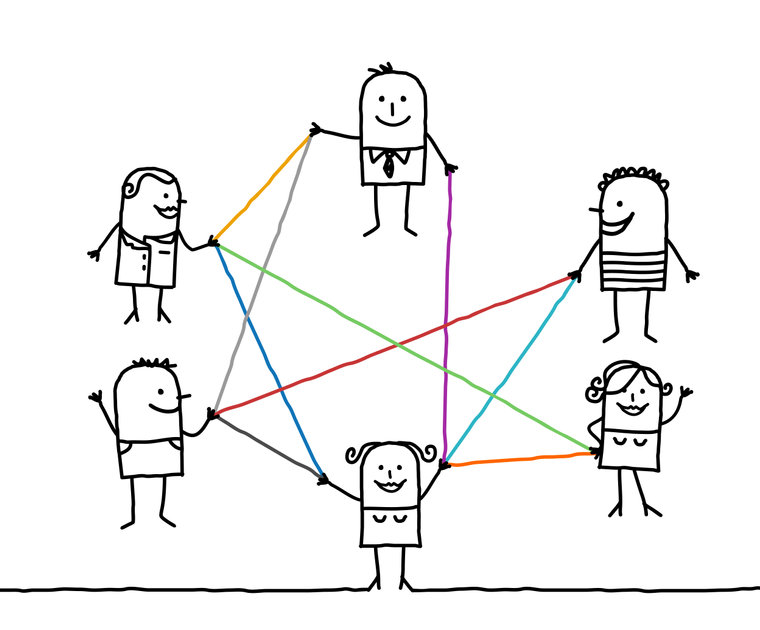How to Nurture
Family Relationships
 Image Source: shalamov; "Father and kids enjoying beach vacation on tropical island.", 2024. Accessed via https://www.123RF.com/photo_90310221, Standard License.
Image Source: shalamov; "Father and kids enjoying beach vacation on tropical island.", 2024. Accessed via https://www.123RF.com/photo_90310221, Standard License.Family is the foundation of our lives, offering love, support, and a sense of belonging. But we must nurture family relationships for them to thrive. Whether a biological or "chosen" connection, a bond occurs when you know someone cares deeply enough to purposely and actively be in your life.
Family members who have close relationships are the ones who share time, laughter, and experiences together. Even if they're not very much alike individually, they can find common ground.
Communication Builds Bonds
Every relationship needs communication to create an atmosphere of openness and understanding. Even if understanding isn’t achieved, knowing that you can express yourself and your opinions and receive respect in return creates a feeling of security that we all crave from family members.
These three methods of communication can help build family bonds:
- Active Listening
Pay close attention to what your family members are saying, both verbally and nonverbally. Put away distractions and focus on understanding their feelings and perspectives.
- "I" Statements
When expressing concerns, use "I" statements to take ownership of your feelings. This can lead to more productive conversations than accusatory "you" statements.
- Open Communication
Encourage open and honest communication within your family. Create a safe space where everyone feels comfortable expressing themselves.
Consistent and open communication between family members also makes conflict resolution easier. The above communication methods help you focus on solutions rather than laying blame or simply trying to be the one who is right.
Maintain respectful communication, especially during disagreements. Avoid personal attacks and listen to each other’s perspectives. This not only keeps the communication open, but it also helps create a willingness to compromise and forgive each other. Remember, no one is perfect, and forgiveness is essential for healthy relationships.
Taking Time to Nurture Family Relationships
Do you have a sister, brother, or parent with whom you have practically nothing in common as an adult? And yet, when you visit that family member, you feel the closeness between you? That closeness comes from the memories and traditions that connect you.
This is why, for many families, holidays are so meaningful. It's why, when you smell a pie baking, you may think fondly to the time when Grandma spent hours in the kitchen preparing Thanksgiving dinner. And how silly Aunt June would always sneak a piece as soon as it came out of the oven – when no one was looking – to share with you on the front porch.
Memories of time spent with a family member forge a deep connection. When you give your time to someone, and are truly present with that person, it makes them feel important. And don't we all want to feel important to someone?
Building connections also comes from dependability. When you can count on someone, when you know they will always be there for you, there is connection. One heartwarming example of this is when you walk into a hospital lobby and see an entire section populated by family members waiting for news on a loved one's surgery outcome. They talk, reminisce, and pray as they wait. Whether the outcome is good or not so good, they sigh in relief or share hugs and tears – together.
Simply being there is one of the best things you can do to build family bonds. Graduations, dance recitals, birthdays, holiday gatherings, weddings, funerals, and hospital visits – your presence lets them know they can depend on you. And they'll let you know you can depend on them, too.
Even if you can't be there in person, send a note or maybe a text, make a call, something to let your loved one know you care. Knowing your heart is with them when you can't be will still encourage the closeness you seek.
You can build traditions and create close family relationships by making a point to spend more time together.
- Plan regular activities that everyone enjoys, whether it's a movie night, a board game marathon, or a family outing.
- Make mealtimes a priority. Sit down together, turn off electronics, and connect over conversation.
- Dedicate individual time to each family member. This could be a simple chat before bedtime, a special outing, or a separate conversation during a holiday gathering.
- Establish traditions that create shared memories and a sense of belonging. This could be a weekly game night, a special holiday celebration, or a family volunteer activity.
- Show appreciation for your family members. Thank them for their contributions, big or small, and express your love and care.
- Honor the history you share. Talk about family stories and memories. This can strengthen your connection to each other and create a sense of shared identity.
What Makes a Family
There are many varieties of families in our world. Each of them comprised of individuals (biologically related or not) who have chosen to commit themselves to the other members of the group.
They are present in each other’s lives. They share quality time, laughter, tears, meals, hugs, and give what they can materially or otherwise to show they care for one another. They put in the effort to make memories and build traditions to share with future generations. This is what cultivating a loving and supportive family is all about.














